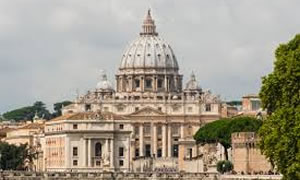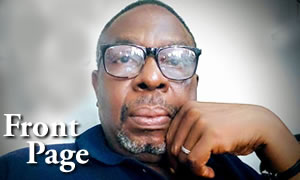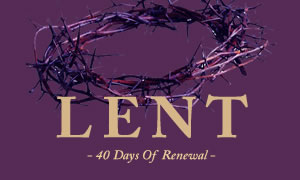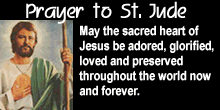


 Hundreds of millions of people worldwide say "I believe in the One, Holy, Catholic, and Apostolic Church" every week, and yet do they reflect on the meaning? This article gives a brief history of the Catholic Church, and explains what the Catholic Church is.
Hundreds of millions of people worldwide say "I believe in the One, Holy, Catholic, and Apostolic Church" every week, and yet do they reflect on the meaning? This article gives a brief history of the Catholic Church, and explains what the Catholic Church is.
The word "catholic" comes from the Greek word katholikos, which is a combination of the words kata (according to) and holos (the whole). Besides meaning, "according to the whole," katholikos has the common meaning of "universal" or "general." To be a Catholic Christian is to be a Christian according to the whole, to possess the fullness and completeness of Apostolic faith, practice, and worship. In the early Church, "Catholic" designated a Christian who confessed the ancient faith, a Christian in communion with the united and worldwide Church. This was in contrast to regional and novel sects. Apostolic just simply means "from the apostles," the source of Catholic belief and practice. In the early Church, even in St. Paul's day, competing versions of Christianity began to arise, primarily early versions of Ebionism, Gnosticism, and Docetism. These sects so mangled the gospel received from the apostles that early Christian bishops spoke out against these heretics' particular views, opposed to the universal (Catholic) views of the Church, derived from the apostles themselves. St. Ignatius of Antioch (d. AD 110) was bold to write, "wherever Jesus Christ is, there is the catholic Church," implying of course that Jesus was only truly preached and proclaimed within the borders of the universal Church. He also implies that the Catholic Church, under the authority of bishops, was sanctified with Jesus' presence, being holy and set apart (Ignatius to the Smyrneans).
In Against Heresies, St. Irenaeus (d. AD 200), bishop of Lyons, testifies to the prolific, yet united, character of the universal and apostolic Church. The Catholic Church, derived from the apostles, Irenaeus argues, is spread throughout the whole world, yet agrees as one mind. The heretics do not have this universality or ancient origin, and are thus not "according to the whole" because their doctrines and practices are confined to local regions, or are recent, non-apostolic developments. Lactantius (313 AD) writes about the various sects named after their leaders or originating locales, including the Phrygians (Montanists), Novatians, Valentinians, and Marcionites. Then he contrasts these to the universal, worldwide Church that is descended from the apostles, that "alone retains true worship" (The Divine Institutes, IV:30). The major creeds of Christianity, the Apostles and Nicene Creeds, both require belief in the Catholic church, although some modern translations incorrectly "soften" the text to say "Christian" rather than "Catholic" (1). The writings of the Church Fathers all attest to the importance of being both catholic and apostolic, i.e. universal and ancient. For them, there was no other option except heresy (false belief) or schism (willful separation from the church). After all, the early Christians were not modernist individualists. Faith was not just an individual matter, but had serious communal implications, and assenting to the beliefs and practices of the whole Church was the only way to guarantee genuineness of belief. The Greek word from which our word heresy is derived is haireo, to choose. This underscores the particularity of heretics, who "choose" their own way forward, as opposed to the universality of Catholics, whose wills are aligned with Christ.
Why choose to be a Catholic Christian? Isn't being simply a "Christian" good enough? St. Pacian of Barcelona (d. AD 392) must have been asked the same questions. He writes, "Christian is my name and Catholic is my surname. The one designates me; the other makes me specific. Thus I am attested and set apart...when we are called Catholics it is by this appellation that our people are kept apart from any heretical name (William Jurgens, Faith of the Early Fathers, volume 2, p. 142).
Pacian knew well even in his day that virtually anybody could claim the label Christian. The same is true today. I can put a sign up in my front lawn that says, "The Christian Church of David Bennett." I could believe Jesus was an earlier incarnation of John Lennon, and still claim the label Christian! The same was happening back in Pacian's day. St. Epiphanius (d. AD 403) counted over eighty active heresies. By number eighty he was straining a bit, but nonetheless, the point remains the same. Many of us gladly claim the surname Catholic, as it shows that we are part of the universal and historical church, rather than a local, new sect like the Jehovah's Witnesses, who are primarily an American apocalyptic sect founded in the 19th century. I think it is worth noting at this point that the Catholic Church recognizes the possibility of salvation of non-Catholics, as well as their good works done in the name of Christ, even if they are not part of the Catholic Church.
The Catholic Church has traditionally identified four marks that make a church true: one, holy, catholic, and apostolic. The Catholic Church possesses these marks. Let me briefly explain the four marks of the Church. The Church is:
One - This means that the Church is united in Christ in basic belief and practice. Ancient Christians did not believe in an invisible church spread out among various denominations. Rather, the visible Church was one in faith.
Holy - The Church is holy on account of Christ, not on account of the morality of individual Christians. Because Christ is holy, and the Church is his body, the Church is called holy. Through the sacraments, prayer, Scripture reading, etc, Christ gives us grace to continually become more like him, and as such, we grow in holiness with the aid of Christ and the Church.
Catholic - This has been explained throughout the article, but as a summary, a Catholic Church is one that holds to the fullness of Christ's Teachings.
Apostolic - As mentioned above, Apostolic means that Catholics follow the Teachings of Christ and the apostles. However, this is more than just reading the Bible and claiming to know what it says. Through apostolic succession, the handing down of authority from the apostles to their successors, the Church has a concrete, historical connection to the apostles themselves. Because of this, the Church has the authority to make pronouncements and establish guidelines with the authority of Christ himself. This teaching authority is referred to as the Magisterium, and consists of the Pope (the successor to Peter) acting in union with the bishops.
Now we must discuss what it means to be a Catholic Church. As a Catholic website with many Orthodox and some Protestant staff, this is a question we intend to address accurately and charitably. The Catholic Church recognizes the Orthodox Churches (including non-Chalcedonian Orthodox Churches) as Apostolic, "true particular Churches" with valid sacraments. This status as "true particular Church" is derived from the fullness of grace and truth entrusted to the Catholic Church. Thus, while the Catholic Church believes that the Church of Christ subsists in the Catholic Church, Orthodox sacraments are valid. The Catholic Church allows Orthodox Christians to commune in certain circumstances, and the late Pope John Paul II spoke of the Eastern Church as one of the two "lungs" of Christendom. The Orthodox tend to assert that they can say where the Church is, but not where it is not, and the Catholic position seems very similar. Thus both Catholic and Orthodox recognize that the borders of the Church are somewhat of a mystery, although both Catholics and Orthodox believe each is the true and visible Church. As a Catholic I affirm that the Church of Christ subsists in the Catholic Church, but that this somehow includes the Orthodox in a very real way.
One may ask, where does the bishop of Rome, the Pope, fit into all of this? Catholics believe that the Pope (and his Roman See) is the successor of St. Peter, and thus possesses a spiritual and jurisdictional Primacy that no other bishop holds. Eastern Orthodox Churches (whom the Catholic Church recognizes as "Sister Churches," with qualifications) will perhaps grant a kind of "first among equals" primacy to the bishop of Rome, but not a jurisdictional, or really even a spiritual, primacy. The office of the papacy has been abused at times, as has the power of other bishops in other regions, which has led many to distrust the papacy. For example, Martin Luther and other Protestants strongly criticized the papacy. However, we mustn't judge an office by its worst examples. As a website working toward ecumenical relationships between East and West, perhaps we need to emphasize that the primacy of the bishop of Rome is ultimately a primacy of servanthood and humility. Pope John Paul II in 1995 called for Catholic theologians to examine the primacy of Rome in light of ecumenical relationships and servanthood (Ut Unum Sint 95). However, despite this noble call which unfortunately few have heeded, the Pope, the successor to Saint Peter, is the visible head of the Church, who when speaking on matters of faith and morals on behalf of the Church is infallible, and this presents a problem in light of East-West relations. However, as I have said, Catholics are willing to grant the Orthodox Churches the role of "Sister Churches" and are willing to commune Orthodox Christians. This shows that the Catholic Church recognizes that despite the unwillingness of many Eastern Churches to recognize the Primacy of Rome, they still possess qualities that make them part of the Church. Perhaps this, and the call to reflect on the papacy in light of an improved relationship with the East, are good starting points to future unity.
What about Anglicans you may ask? Anglicans have tended to view themselves as a "branch" of the Catholic Church under the "branch theory," a theory only held by Anglicans and not by the other "branches." In the first half of the 20th century, Anglicans seemed to be close to some kind of formal reunion with both the Catholic and Orthodox Churches, which to a degree validated this "branch" claim. However, since the ordination of women priests (and women bishops, and now a woman Primate in the United States) and the acceptance within the Anglican Communion of a host of secular social and doctrinal principles, the "branch theory" has lost much support, even within Anglicanism. This is because now the Anglican Communion consists mostly of evangelicals thanks to growth in evangelical regions of the third-world. Perhaps a good way to approach the Anglican church is to argue that there may be a "Catholic remnant" within that church, which has valid sacraments. However, in the light of the current liberal and evangelical trends within Anglicanism, and the questionability of their orders in the eyes of both Rome and Constantinople, many Catholic-leaning Anglicans have either become Catholic or Orthodox.
What about other Protestants? Very few Protestant churches want to be called "Catholic" in any real sense. After all, many value their Reformation heritage. However, some, on account of their increasingly liturgical worship, have begun taking steps to improve their relationships with the Catholic and Orthodox Churches. While the Catholic and Orthodox Churches are willing to grant that Protestant churches are Christian, granting them the title "Catholic" is usually discouraged for two reasons. First, Protestants are not officially in communion with the Catholic Church, and do not have valid orders. This means that while they do many good things, their church leaders have not been validly ordained in Apostolic Succession. Second, many Protestants do not self-identify as Catholic and do not wish to be labeled Catholic. Thus, not labeling Protestants as Catholic is a result of mutual respect.
Perhaps you are not quite Catholic, but interested, and cannot yet make the leap. We understand that everyone moves at a different speed, and encourage you to continue your study and prayer of Catholicism. And remember that the Catholic Church makes no judgment about the salvation of those in non-Catholic Churches, for such judgment belongs to God alone. And the Church praises the good works and truth in other ecclesial communities. However only within the Catholic Church is the fullness of the Christian faith found. Only within the Catholic Church is the guarantee of being in communion with the Christ and His Church. This is the guarantee of the fullness of being "according to the whole," being a part of the historical, apostolic, and universal Church!
In conclusion, we believe in the holy Catholic and Apostolic Church, i.e. the sanctified universal and ancient church. In the postmodern world, amidst relativity, amidst the accommodation of the Church to secular culture, we are proud to be a part of the timeless universal Christian Church.


I have been thinking a great deal about my experience at Reconciliation this past Saturday. I felt an intense and unexplainable urge to go and confess my sins when I woke up that morning. I try to go every six weeks or so, but this was no routine visit to the priest for me. I needed to unburden myself of the numerous venial sins I had committed since I last participated in this Sacrament.
Purest Gold: God's Refining Fire in our Lives »
After salvation, many young Christians wonder if there's anything more to their newfound faith than just the security blanket of "being a Christian." Time and time again, God shows himself as a "refiner," and our lives are as gold. God started leading me in this study to understand what He was doing in my life, as well as in the lives of others.
Picking up my pen to write this column, I couldn’t imagine how time flies. Since the last publication of this column I have gone through a lot, especially the loss of my dear mother to whom I dedicate this article. Not only her, but seems I lost a whole generation of my close family.
How to Achieve Business Excellence »
“Do you see a man who excels in his work? He will stand before Kings; He will not stand before unknown men.” Proverbs 22:29
Spiritual Development for our Youth »
Most of us youth in today's fast moving world are easily thrown off by difficulties and worries.
The theme of conversion is a thread that runs all through Lent, but conversion takes on different aspects throughout the phases of Lent. The first two and a half weeks focused on the interior turning of hearts; the liturgy urges the faithful to reflect and examine consciences thoroughly.
Saint Josephine Bakhita »
Feast Day: February 8
Patron Saint Of: Sudan
Saint Josephine Margaret Bakhita was born around 1869 in the village of Olgossa in the Darfur region of Sudan. She was a member of the Daju people and her uncle was a tribal chief. Due to her family lineage, she grew up happy and relatively prosperous, saying that as a child, she did not know suffering.
Catholics Must Fast More Intensely This Lent»
The Norbertine Canons of St. Michael's Abbey have created this digital Lenten retreat so that you can journey through this holy season alongside them. If you want to have one of your best Lenten seasons yet, join us in our Lenten Program "The Great Fast" - https://theabbotscircle.com/the-great-fast-join
When Your Faith Is Put to the Test - Bishop Barron's Sunday Sermon»
Friends, we come now to the Second Sunday of Lent, and we’re on both dangerous and very holy ground with the first reading from the twenty-second chapter of Genesis. The ancient Israelites referred to it as the “Akedah,” which means the “binding”: Abraham binds and is ready to sacrifice Isaac at God’s command.

Copyright © 2002-2024 THE BEACON INTERNATIONAL CATHOLIC MAGAZINE. All rights reserved.
another mc.rufus interactive web design